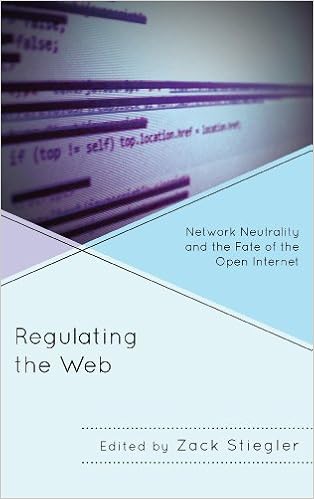Network neutrality is in danger. Yet it is not what those of us who care about democracy and a free marketplace of ideas seek. We need to be fighting to wrest access to the internet out of the hands of large corporations who currently dominate it. The debate makes clear that it is time to start treating the internet like a utility. Most regions of the US are dominated by only one or two major internet service providers. A marketplace with so few choices is not a free market. The net neutrality debate makes clear that it is time to start treating internet like a utility rather than pretending that monopolistic internet service providers operate in a free market.
Current FCC chairman, Ajit Pai, voted against those rules when he was a commissioner. He has supported “light-touch” regulations that instead require Internet Service Providers (ISPs) to disclose any blocking or prioritization of their own content or from their partners. Now more than twenty Internet experts, including the “father of the internet” Vint Cerf and Tim Berners-Lee, inventor of the World Wide Web, say in a letter that they are concerned that rules written to replace the current ones are based “on a flawed and factually inaccurate understanding of Internet technology”. They mentioned “major problems” the FCC had with its online comment system. The FCC received 23 million comments on the issue of net neutrality, but millions of them were fake submissions. Nearly a half-million comments came from Russian email addresses. Last week, the agency’s general counsel rejected an open letter by New York Attorney General Eric Schneiderman’s (D) request for information about comments filed in the agency’s net neutrality records and whether some were filed under stolen identities.
The FCC is expected to pass the new regulations, with the three Republicans on the commission saying they support the measure. The FCC, the letter noted, has also not “held a single open public meeting to hear from citizens and experts about the proposed Order” ― a break from “established practice.” Congress should cancel the agency’s vote, the experts say, because the FCC’s “rushed and technically incorrect proposed Order to abolish net neutrality protections without any replacement is an imminent threat to the Internet we worked so hard to create.” Democratic lawmakers have consistently opposed the repeal and are continuing their quest to keep the net neutrality rules in place. A letter by thirty-nine senators urged Pai to “abandon this radical and reckless plan to turn the FCC’s back on consumers and the future of the free and open Internet.” On December 7, Rep. Sean Maloney (D-N.Y.) introduced H.R. 4585 to prohibit the FCC from relying on the Notice of Proposed Rulemaking in the matter of restoring internet freedom to adopt, amend, revoke, or otherwise modify any rule of the Commission. Rep. Mike Doyle (D-Penn.) announced that he will introduce legislation to reverse the repeal if the FCC votes on it.

It is unlikely that the three Republican commissioners will switch sides. The FCC is an independent agency. The courts have generally allowed the FCC to classify services as it wishes. One issue is whether the FCC has the authority to make a U-turn and reduce broadband ISPs to an information service. A court could challenge the FCC’s reversal ruling that the agency is behaving in an arbitrary or unreasonable manner. It will be hard to convince a court that broadband service is no longer a utility subject to regulation. Courts will serve as the real check on an FCC trying to create a closed off and more expensive web. See Brooklyn Law Library’s online version of Regulating the Web: Network Neutrality and the Fate of the Open Internet which brings together a diverse collection of scholars who examine the net neutrality policy and surrounding debates. The book contributes to discourse about net neutrality so we may continue toward preserving a truly open Internet structure in the US.
